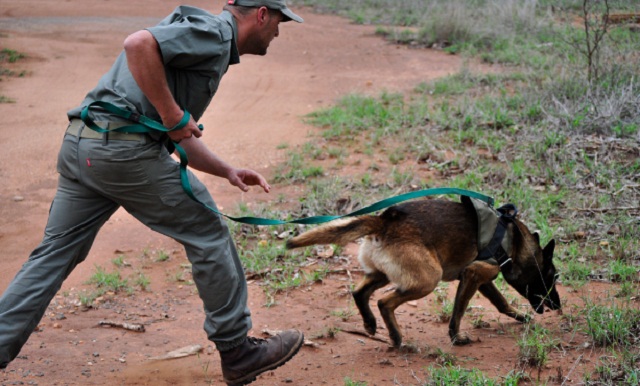
The bloodhound puppies are being trained by former police officers Linda Porter and her husband John Lutenberg, who spent decades hunting escaped convicts across the United States.
The couple trained and brought the first two dogs to Kenya in 2009, however one was so terrified by all the unusual smells that it impacted his tracking.
The new crop of puppies were born in Kenya “and are progressing very fast,” Porter told AFP.
– First line of defence –
In the late nineties, the Mara Triangle, which makes up a third of the entire reserve, was crippled by rampant poaching and such bad insecurity that one ranger recalls “tourists being robbed, stripped and dumped on the side of the road”.
Management of the reserve was then taken over by the Mara Conservancy, a public-private partnership with the local Maasai community.
While the dog unit has greatly reduced daytime poaching, other technology such as the use of a thermal imaging camera, has helped track poachers at night.
Meanwhile, the use of community scouts and “private spies” has strangled local poaching gangs on the Kenyan side of the border, and Langas says the majority of poaching now occurs on the almost invisible border between Kenya and Tanzania.
“The conservancy is hiring the sons and daughters from this community neighbouring the park… if the community learn there is someone having a bad intention to kill an animal,” they will come forward, he says.
A joint agreement between Kenya and Tanzania allows the rangers and their dogs to patrol deep into the Serengeti, with any poachers handed over to Tanzanian authorities.
“We are the first line of defence from Tanzania. We prevent poachers coming into the Mara and the Kenyan side,” said Asuka Takita, a Swahili-speaking Japanese vet, who helped start the canine unit.
“There is still a lot of work to do but we have caught over 4,000 poachers in the past 18 years,” she said.
 The Independent Uganda: You get the Truth we Pay the Price
The Independent Uganda: You get the Truth we Pay the Price


